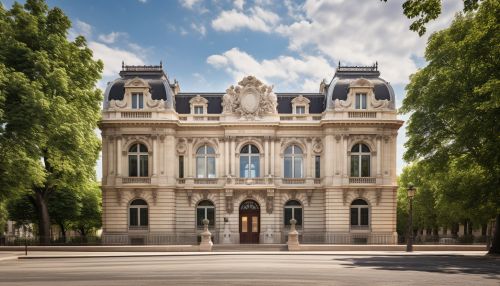French Academy of Sciences
History
The French Academy of Sciences was officially established on December 22, 1666 by Louis XIV. Its foundation was part of the king's ambition to modernize France, which was then a feudal country. The Academy was placed under the protection of Jean-Baptiste Colbert, the finance minister of Louis XIV, who played a significant role in its development. The Academy was initially composed of 21 scientists and was installed in the Royal Library in Paris. The first president of the Academy was the mathematician and philosopher, René Descartes.


Mission
The mission of the French Academy of Sciences is to encourage and protect the spirit of research, and to help in its applications for the benefit of society. The Academy is committed to promoting the growth of science and advising government authorities on scientific issues. It is a multidisciplinary institution that covers all the fields of knowledge in science, including mathematics, physics, chemistry, natural sciences, biology, and medicine.
Organization
The French Academy of Sciences is composed of 260 members, 129 foreign associates, and 166 corresponding members. The members are divided into two divisions: the first division includes mathematical sciences, physical sciences, and their applications; the second division includes chemical, biological, geological, and medical sciences and their applications. Each division is headed by a president, who is elected by the members for a term of one year.
Activities
The activities of the French Academy of Sciences are diverse and include organizing scientific meetings, publishing scientific works, awarding scientific prizes, and participating in international scientific organizations. The Academy also plays a role in the education and popularization of science. It organizes public conferences and debates on current scientific issues, and publishes a bimonthly magazine, "La Lettre de l'Académie des sciences", aimed at a wide audience.
Impact
The French Academy of Sciences has had a significant impact on the development of science in France and worldwide. It has been the home of numerous eminent scientists, including Pierre-Simon Laplace, André-Marie Ampère, Louis Pasteur, and Marie Curie. The Academy has also played a crucial role in the establishment of the metric system and the development of the French scientific education system.
